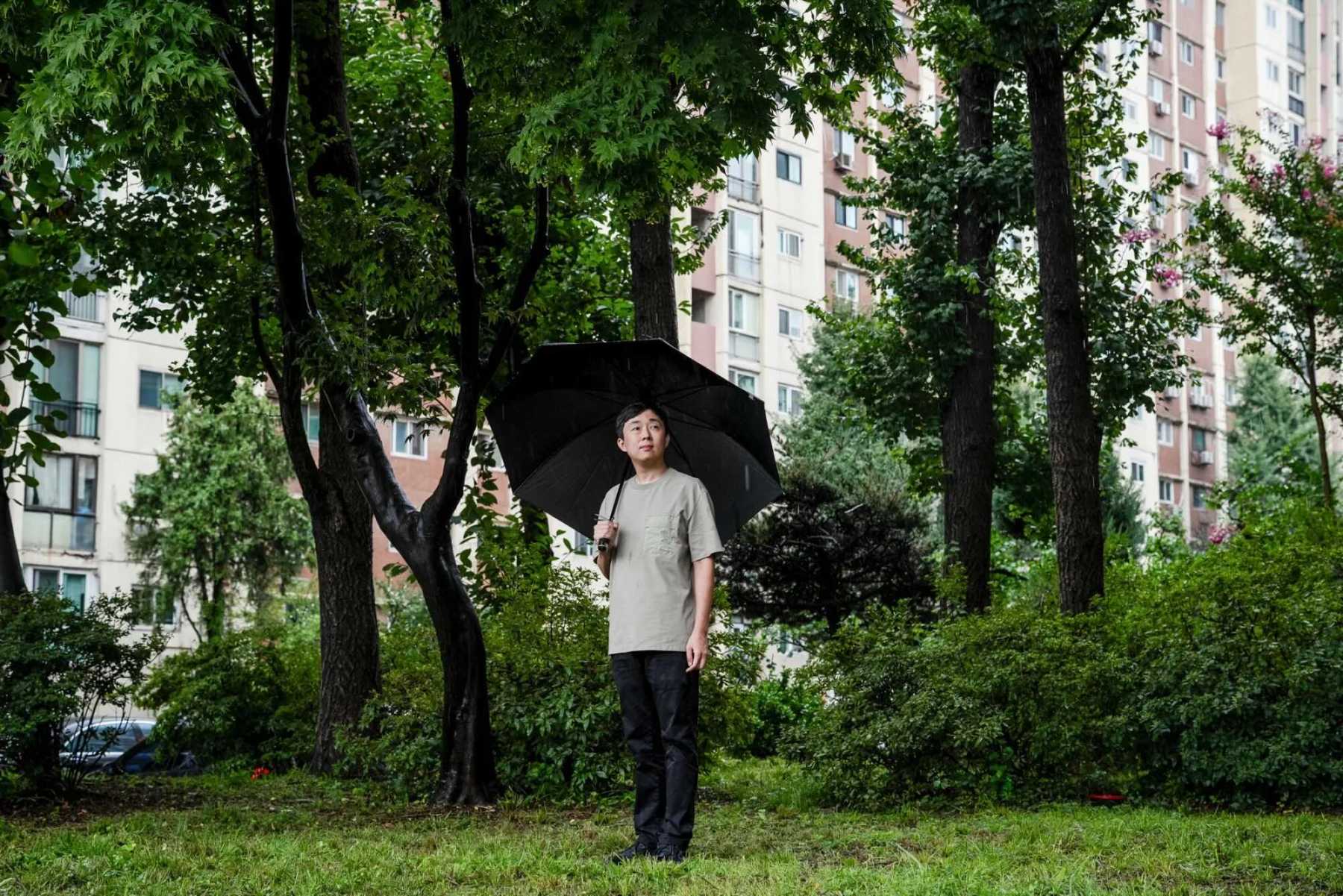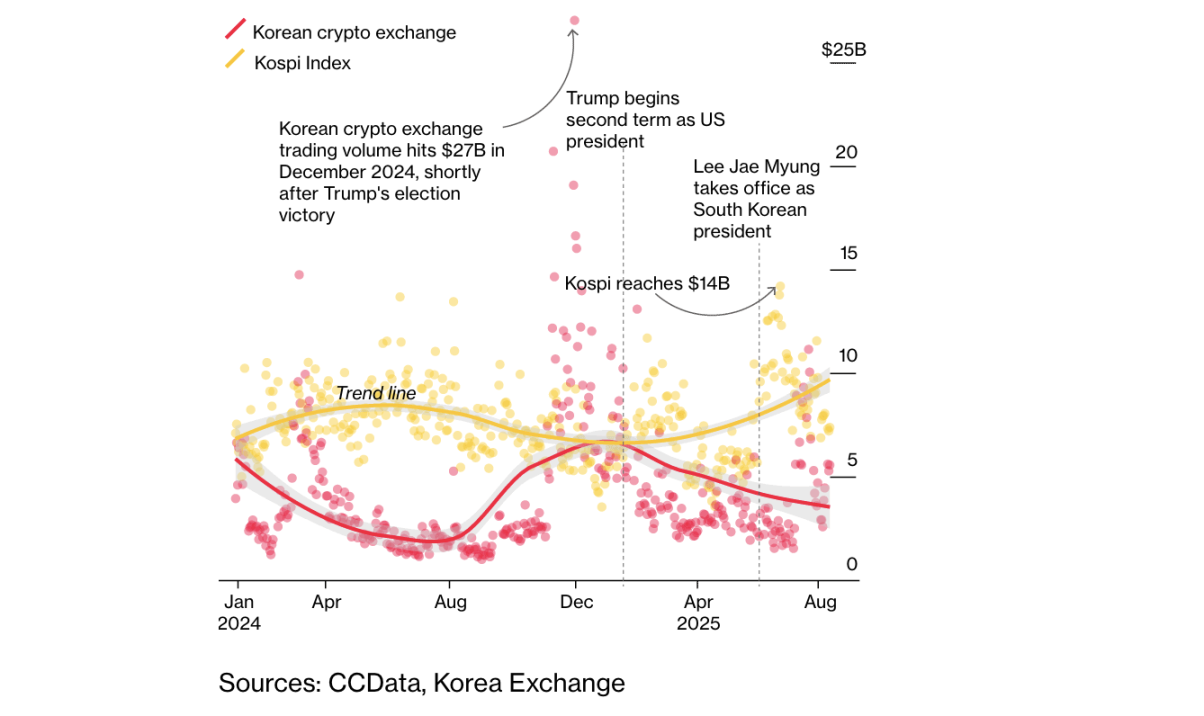Written by: Sangmi Cha, Haram Lim
Translated by: Luffy, Foresight News
Tony Kim, a manager at a textile company in Seoul, buys into a stock with his entire portfolio as long as he is optimistic about it.
At 34 years old, Tony Kim has never held more than one stock at a time in his investment portfolio of 140 million won (approximately $98,500). The father of two said, "Koreans, including myself, are obsessed with that dopamine rush; it seems to be ingrained in our genes."

Tony Kim
For many retail investors, such behavior may seem reckless or indicative of an unusual ability to handle pressure. However, among the approximately 14 million retail investors in South Korea, known as the "ant swarm," this is merely a reflection of their extreme desire for returns and a continuously rising risk appetite.
This desire has driven funds to pour into investment accounts at a near-record pace. Over the past five years, South Korean retail investors have doubled the scale of margin loans through leveraged trading; they have flocked to highly speculative leveraged and inverse exchange-traded funds (ETFs), which account for 40% of the total assets of some leveraged ETFs registered in the U.S. Meanwhile, the trading volume of high-risk cryptocurrencies has also surged to historic highs.
The frenzied trading of retail investors has not only reshaped the market but also made them a significant political force. The power and anxiety of these investors are so intense that they have even forced the South Korean government to make a policy reversal for the first time.
Currently, global markets are at historic highs due to a surge in artificial intelligence infrastructure development, but the highly leveraged South Korean retail investors find themselves in an extremely vulnerable position. Once market sentiment shifts, speculative positions could collapse in an instant, and losses could be further magnified.
Such a turning point occurred just over a week ago. The escalation of the U.S.-China tariff dispute triggered a cryptocurrency crash, causing many altcoins to plummet to zero. South Korean retail investors are known for their high-stakes bets on small-cap tokens. These tokens experience extreme price volatility, with altcoins accounting for over 80% of the total trading volume on South Korean cryptocurrency exchanges; in contrast, on global platforms, Bitcoin and Ethereum typically account for more than 50% of trading volume, highlighting a stark difference.
For many South Korean retail investors, all high-risk operations point to the same goal: to accumulate enough wealth in a fiercely competitive market to buy their own home. Koreans refer to this struggle as "borrowing a soul," a term that accurately reflects the emotional and economic pressures behind the dream of homeownership.
Recent policies from the South Korean government have further exacerbated the risk-taking behavior of retail investors. New mortgage limits and rent increases resulting from rental market reforms implemented by President Lee Jae-myung have made home buying even more elusive. Last week, the government introduced several measures to cool the overheated real estate market, including tightening loan limits in the Greater Seoul area and reducing the loan-to-value ratio for mortgaged properties.
"Our parents' generation accumulated wealth through the real estate boom of the Han River miracle, but our generation does not have such luck," said 36-year-old Kim Soo-jin. She was a business consultant and used her entire severance pay to start investing in cryptocurrencies after leaving her job. "In my circle, about 30 people have 'graduated' — meaning they have made enough money to exit high-risk investments." She said, "I also hope to 'graduate' one day."

Han River in Seoul
Buyers Beware
The momentum of South Korean retail investors chasing prices is evident across various markets. Since Donald Trump won the U.S. election and began his second term last year, trading volume on domestic cryptocurrency exchanges in South Korea has surged, at one point reaching 80% of the trading volume of the South Korean benchmark Kospi index; stablecoins pegged to fiat currency have also attracted a large influx of retail funds.
Investors have also been pouring into leveraged and inverse ETFs, which amplify returns (and losses) by 2 to 3 times through derivatives. Due to strict regulations on such products in South Korea, including simulated trading exercises and high margin requirements, retail investors have turned to overseas markets and have now become significant participants in the global leveraged ETF market.

Comparison of trading volume on South Korean cryptocurrency exchanges and Kospi index trading volume
The high-risk behavior of South Korean retail investors not only puts household savings at risk but also places pressure on the financial system, threatening overall economic stability. As investors flock to high-yield, high-risk assets, traditional financial instruments are gradually losing favor, and banks are facing a squeeze on their funding channels. In the six weeks following July of this year, South Korea's major banks lost nearly 40 trillion won (approximately $28.1 billion) in deposits.
"In South Korea, investing is often seen as gambling rather than a long-term plan — almost as brutal as 'Squid Game,'" said Choi Jae-won, an economics professor at Seoul National University. "Once the bubble bursts, individuals face a negative wealth shock, and the problems worsen: personal credit crises, decreased consumption capacity, ultimately affecting the entire national economy."
Regulators are equally concerned. "We worry that if the market crashes, it will impact retail assets and the overall economy," said Lee Yoon-soo, a permanent commissioner of the South Korean Securities and Futures Commission.
Psychiatrists point out that the mental toll of high-risk investments on individuals is continuously increasing. "Without inherited wealth, owning an apartment in Gangnam (a wealthy district in Seoul) is just a dream," said Park Jong-sik. He once lost about $250,000 in investments and now runs a clinic specializing in treating investment addiction. "In this anxiety-ridden society, even knowing the risks, people are still drawn to high-risk investments. It’s as if the entire system is pushing them forward, trapping them in a cycle of anxiety-driven investment addiction."

Park Jong-sik
"Wiped Out Overnight"
For some, the scars of investment crashes are hard to heal. 35-year-old Han Jeong-hoon once experienced the euphoria of "a cryptocurrency wallet balance skyrocketing 30 times to 6.6 billion won," but the collapse of Luna in 2022 turned it all to dust.
TerraUSD, a stablecoin project launched by South Korean Do Kwon, ultimately failed. In August of this year, Do Kwon pleaded guilty to fraud, and the project evaporated about $40 billion in market value within days.
"My profit of 6.6 billion won disappeared overnight, and I ended up with less than 6 million won," Han Jeong-hoon said.
This crash completely changed his life. Although he has not completely given up on cryptocurrencies, he has distanced himself from high-risk investments and now focuses on meditation, even starting a YouTube channel to share his favorite breathing techniques. He now lives on the remote Jeju Island and occasionally travels to Bali for meditation retreats.

Han Jeong-hoon
Even so, social media platforms like YouTube are still filled with bold success stories of investments. Couples investing all their savings in Bitcoin, 27-year-old college students earning tens of thousands of dollars a month through high-frequency trading… These stories are the bait that attracts investors like Tony Kim.
Tony Kim currently holds a full position in stocks of companies like Nvidia and Tesla. "I've made money through leverage; that feeling of easy profit is addictive," he recalled how he once "made $13,000 overnight from $900," only to lose all his gains in just three days. "You keep chasing that thrill of getting rich."
免责声明:本文章仅代表作者个人观点,不代表本平台的立场和观点。本文章仅供信息分享,不构成对任何人的任何投资建议。用户与作者之间的任何争议,与本平台无关。如网页中刊载的文章或图片涉及侵权,请提供相关的权利证明和身份证明发送邮件到support@aicoin.com,本平台相关工作人员将会进行核查。




